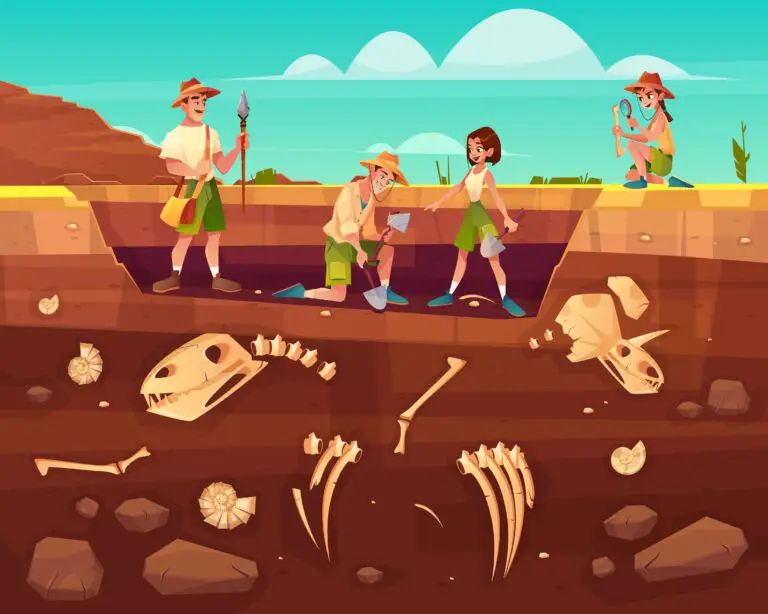Paleontology

Table of Contents
What is Paleontology?
Paleontology is the scientific discipline that focuses on the study of prehistoric life through the examination of fossils. It encompasses the investigation of the history of life on Earth, the evolution and extinction of organisms, and the reconstruction of past environments and ecosystems.
Paleontologists, the scientists who specialize in paleontology, use a variety of methods and techniques to analyze fossils and gain insights into the Earth’s biological and geological past.
Ovierview of Paleontology
Fossils
Fossils are the preserved remains, traces, or imprints of once-living organisms. They provide a tangible record of past life forms, helping paleontologists understand the diversity of species that have existed on Earth.
Fossils are key evidence for studying the evolution of species over time. By examining the fossilized remains of different organisms, paleontologists can trace the development and changes in various lineages, helping to construct evolutionary trees and understand the relationships between different species.
Evolutionary History
Paleontology contributes significantly to our understanding of the evolutionary history of life. By studying fossils, scientists can trace the changes in species over time, identify common ancestors, and document the development of various groups of organisms.
Stratigraphy
Paleontologists often work in conjunction with geologists to analyze the stratigraphy of rock layers. The relative positions of fossils in different rock strata help establish a chronological order of the Earth’s history.
Paleoecology
Paleoecology investigates the relationships between ancient organisms and their environments. It explores how organisms interacted with each other and their ecosystems, providing insights into past climates, habitats, and ecological dynamics.
Taphonomy
Taphonomy is the study of the processes that affect the remains of organisms from the time of death to their discovery as fossils. It includes the analysis of decay, burial, and preservation factors.
Related Links
Ecology
Evolution
Food Chain
Terrestrial